| Article ID | Journal | Published Year | Pages | File Type |
|---|---|---|---|---|
| 4269969 | The Journal of Sexual Medicine | 2014 | 7 Pages |
IntroductionFemale sexual problems and dysfunctions have a high prevalence, ranging from 12% to 80%, depending on the definition being used, underlying comorbidities, and age. Despite the high prevalence, there are only scarce data about the approach gynecologists use to address female sexual dysfunction.AimThe aim of this study is to evaluate the approach of Swiss gynecologists to addressing sexual problems among their outpatients.MethodsAfter a pilot study including 56 physicians, a modified 19‐item self‐administered questionnaire was sent to 856 Swiss gynecologists to evaluate their methods of management of patients with sexual issues and their attitudes regarding the integration of sexual health issues into the gynecological consultation.Main Outcome MeasuresBesides demographic information, the self‐administered questionnaire included questions about addressing sexual health as part of consultation routine, estimated frequency of symptoms, reasons for not addressing sexuality, clinical conditions in which sexuality was addressed, and methods of management of sexual problems.ResultsOf the 341 responding gynecologists (39.8% response rate), 40.4% reported having at least brief (at least 1–2 days) of training in sexual medicine, 7.9% of the respondents routinely explored sexual issues with more than 80% of their patients, 28.2% of the respondents offered appointments specifically for sexual issues, and 85% proposed referrals to specialized colleagues. Lack of motivation for therapy on the part of the patient was mentioned as the most common cause for persisting symptoms (63.3%). Dyspareunia was quoted as the most/second most prevalent type of female sexual dysfunction by 77.1% of the respondents.ConclusionWe conclude that among Swiss gynecologists, sexual problems are regarded as an important issue in gynecological outpatient care, but addressing patients' sexuality is not yet part of routine practice. Swiss gynecologists seem to be most likely to consider hormonal changes (although not so much those due to oral contraceptives) to necessitate discussion of sexual health issues, while psychosocial transitions or stress seem to be considered less important. Kottmel A, Ruether‐Wolf KV, and Bitzer J. Do gynecologists talk about sexual dysfunction with their patients? J Sex Med 2014;11;2048–2054.
